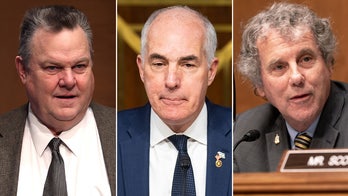THE WHITE HOUSE
Office of the Press Secretary
_______________________________________________________________________________________
FOR IMMEDIATE RELEASE November 24, 2009
Fact Sheets on U.S. – Indian Cooperation
Attached are a series of factsheets highlighting some of the key outcomes of this visit. In total 6 Memoranda-of-understandings were signed, 2 memoranda-of-interest as well as several other initiatives and agreements. Below are some of the highlights from the four papers covering global security and counter-terrorism, education and development, health cooperation, economic trade and agriculture, and green partnerships.
Advancing Global Security and Countering Terrorism
- Expansion of the U.S.-India Counterterrorism Cooperation Initiative, Prime Minister Singh and President Obama committed to redouble their collective efforts to deal effectively with terrorism, while protecting their countries’ common ideals and shared values, and committed themselves to strengthening global consensus and legal regimes against terrorism.
- Support for an early start of negotiations on a multilateral, non-discriminatory and internationally verifiable Fissile Material Cutoff Treaty. The two leaders also look forward to the April 2010 Nuclear Security Summit and agreed to consult each other regularly. They affirmed their commitment to work together to prevent the spread of Weapons of Mass Destruction- and missile-related technology and to realize their shared vision of a world free of nuclear weapons.
Green Partnerships
- Launch of a “Green Partnership” to strengthen U.S./India cooperation on clean energy, climate change, and food security. This reflects our two countries’ commitment to taking vigorous action to combat climate change, ensuring mutual energy security, working towards global food security, and building a clean energy economy that will drive investment, job creation, and economic growth throughout the 21st century.
- Launch of an Indo-U.S. Clean Energy Research and Deployment Initiative, supported by U.S. and Indian government funding and private sector contributions. This new Initiative will include a Joint Research Center operating in both the United States and India to foster innovation and joint efforts to accelerate deployment of clean energy technologies. The Initiative will facilitate joint research, scientific exchanges, and sharing of proven innovation and deployment policies.
- Support for an Indian EPA that will focus on creating a more effective system of environmental governance, regulation and enforcement. Working with the India’s Ministry of Environment and Forests, the U.S. Environmental Protection Agency will provide technical support to help establish an Indian National Environmental Protection Authority.
Economic Trade and Agriculture
- Meeting of the United States – India CEO Forum brought together leaders of the U.S. and Indian business communities — approximately ten from each side across various industry sectors — with senior government officials on November 23. Forum members conveyed their interest in working on recommendations on how the public and private sectors can work together to strengthen economic and commercial ties between the two countries, stimulate innovation, spur job creation, and promote sustainable inclusive growth.
- Launch of a new Agriculture Dialogue and agreed on a Memorandum of Understanding on Agricultural Cooperation and Food Security that will set a pathway to robust cooperation between the governments in crop forecasting, management and market information; regional and global food security through the L’Aquila Food Security Initiative; science, technology, and education; nutrition; and expanding private sector investment in agriculture. The United States and India expect cooperation under the agreement to expand access to knowledge to improve productivity, safety, and nutritional quality of food crops; to strengthen market institutions and foster growth of agribusiness investment and improve food security and access to adequate quantities and quality of food, particularly for women and young children.
- Renewed bilateral cooperation in the field of intellectual property through a Memorandum of Understanding between the Department of Commerce’s United States Patent and Trademark Office and Indian Ministry of Commerce and Industry. The memorandum and action plan will focus on human resource development, capacity building and public awareness programs in intellectual property protection and enforcement.
Enhancing U.S.-India Cooperation on Education and Development
- Expansion of the bi-national Fulbright-Nehru Scholarship Program through a 45% increase in funding by each government to support increased exchanges of students and scholars in priority fields, bringing total support for these scholarships to $6.7 million this year.
- Launched the Obama-Singh 21st Century Knowledge Initiative which will provide $10 million in combined funding to increase university linkages and support junior faculty development between U.S. and Indian universities.
- Formation of the Women’s Empowerment Dialogue (WED) to further the full participation of women in all aspects of society in order for the global community to address the complex challenges we face in this new century. During the initial meeting of the Women’s Empowerment Dialogue in New Delhi, both sides agreed to explore the creation of a “Women’s Empowerment Fund,” that would be able to support WED initiatives such as women’s social and economic empowerment, female literacy, political participation of women, and healthcare.
Health Cooperation
- Creation of a seventh Regional Global Disease Detection Center in India as a part of the Global Disease Detection (GDD) network. This GDD collaboration will include a range of activities, such as emerging disease detection and response, pandemic influenza preparedness and response, laboratory systems and biosafety, field epidemiology training, health communications, and zoonotic disease investigation and control. Other Regional Centers include Kenya, Thailand, Guatemala, Egypt, China, and Kazakhstan.
- Launch of the Health Dialogue: The first meeting of the U.S.-India Health Dialogue is planned for early 2010 in Washington. Secretary of Health and Human Services Sebelius is the U.S. lead and Minister of Health and Family Welfare Azad will lead for India.
- Cooperation on Urban Health through U.S. Agency for International Development’s, soon to be launched, new Health of the Urban Poor Program, which aims to improve reproductive and child health in urban poor populations, especially for those dwelling in slums, by building the local capacity, improving program implementation and increasing resource allocation for urban health through policy analysis. The program will work in close collaboration with urban local bodies and Indian national and state governments.
###




